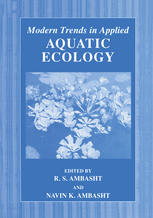

Most ebook files are in PDF format, so you can easily read them using various software such as Foxit Reader or directly on the Google Chrome browser.
Some ebook files are released by publishers in other formats such as .awz, .mobi, .epub, .fb2, etc. You may need to install specific software to read these formats on mobile/PC, such as Calibre.
Please read the tutorial at this link: https://ebookbell.com/faq
We offer FREE conversion to the popular formats you request; however, this may take some time. Therefore, right after payment, please email us, and we will try to provide the service as quickly as possible.
For some exceptional file formats or broken links (if any), please refrain from opening any disputes. Instead, email us first, and we will try to assist within a maximum of 6 hours.
EbookBell Team

4.7
16 reviewsOrganisms and environment have evolved through modifying each other over millions of years. Humans appeared very late in this evolutionary time scale. With their superior brain attributes, humans emerged as the most dominating influence on the earth. Over the millennia, from simple hunter-food gatherers, humans developed the art of agriculture, domestication of animals, identification of medicinal plants, devising hunting and fishing techniques, house building, and making clothes. All these have been for better adjustment, growth, and survival in otherwise harsh and hostile surroundings and climate cycles of winter and summer, and dry and wet seasons. So humankind started experimenting and acting on ecological lines much before the art of reading, writing, or arithmetic had developed. Application of ecological knowledge led to development of agriculture, animal husbandry, medicines, fisheries, and so on. Modem ecology is a relatively young science and, unfortunately, there are so few books on applied ecology. The purpose of ecology is to discover the principles that govern relationships among plants, animals, microbes, and their total living and nonliving environmental components. Ecology, however, had remained mainly rooted in botany and zoology. It did not permeate hard sciences, engineering, or industrial technologies leading to widespread environmental degradation, pollution, and frequent episodes leading to mass deaths and diseases.